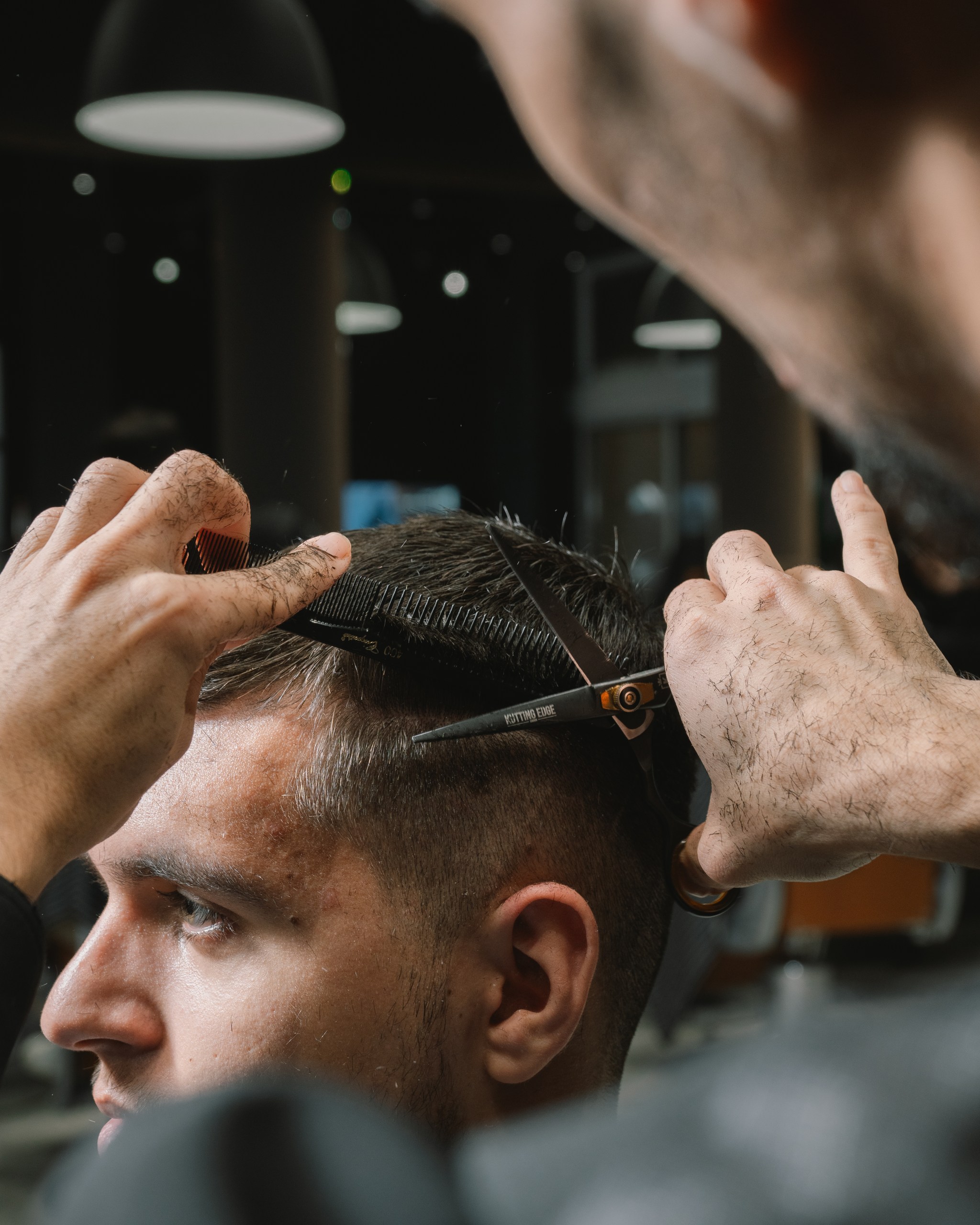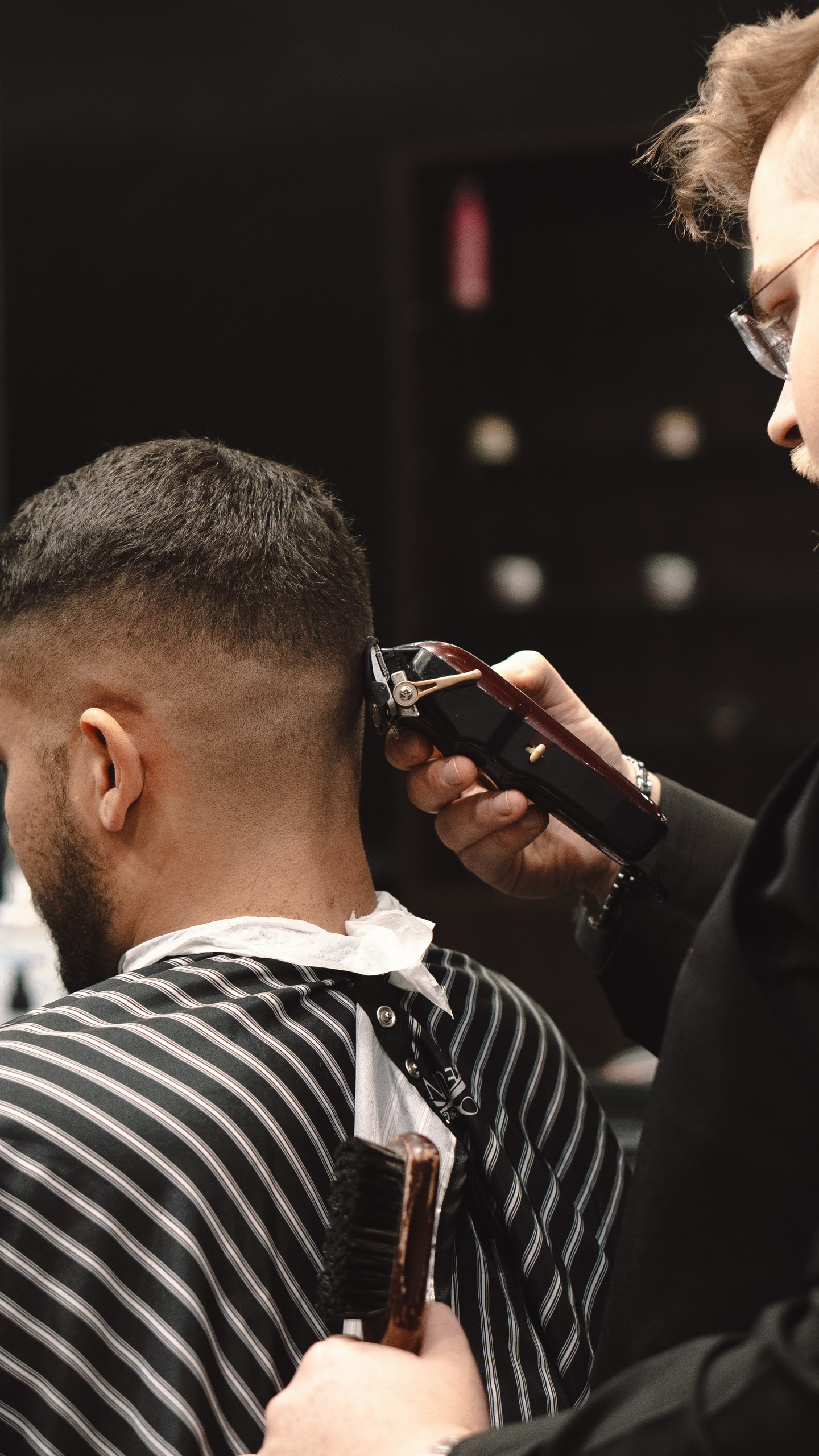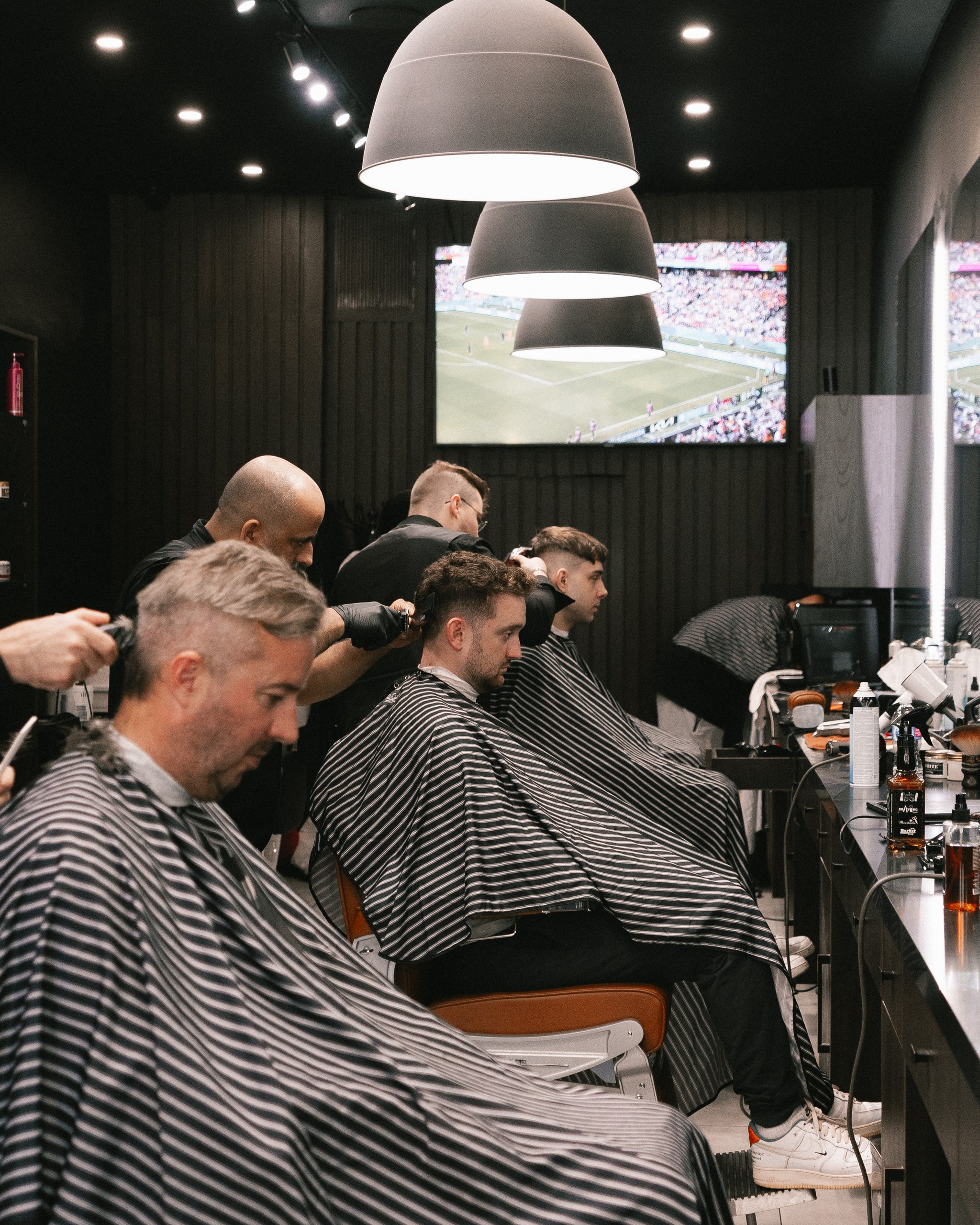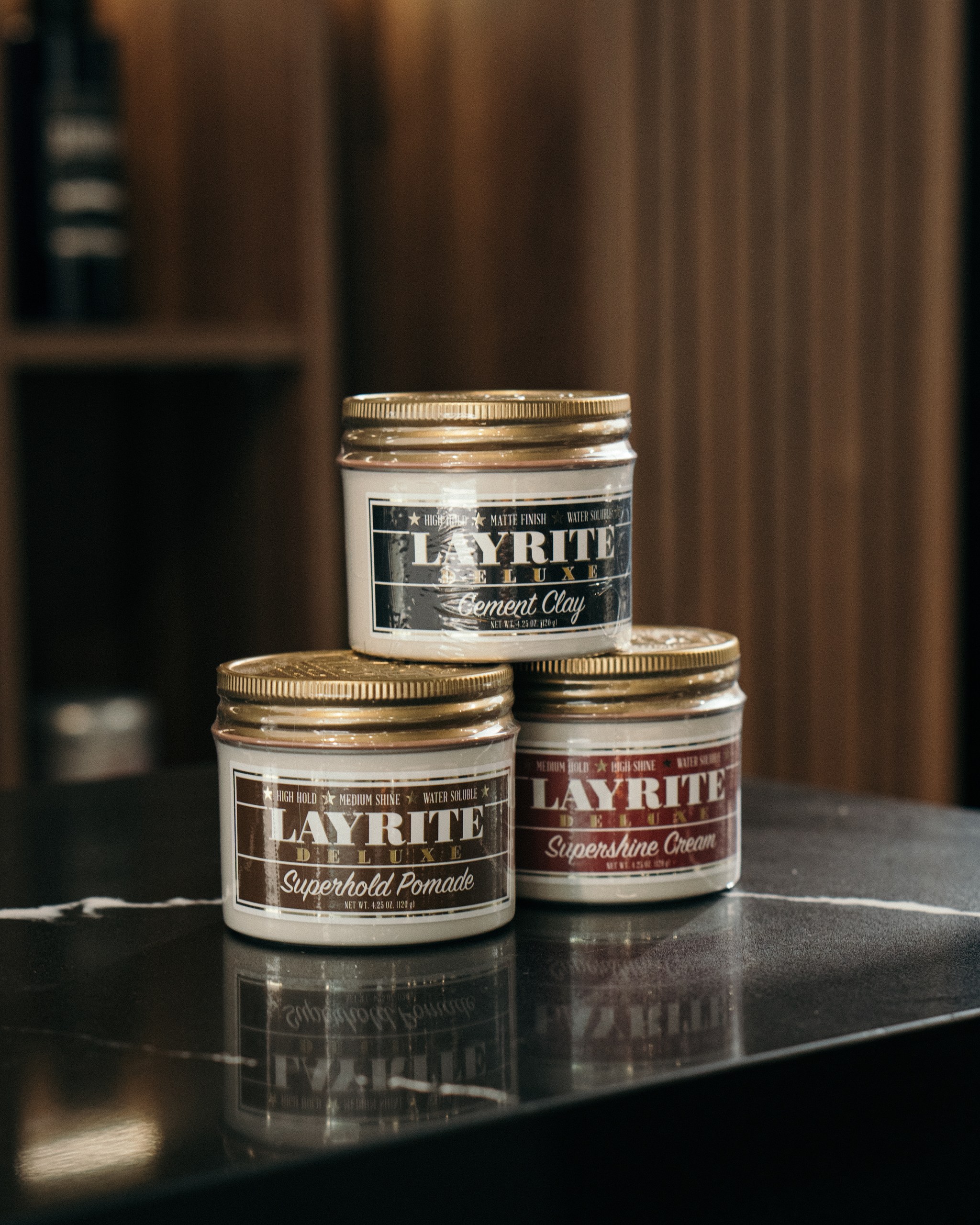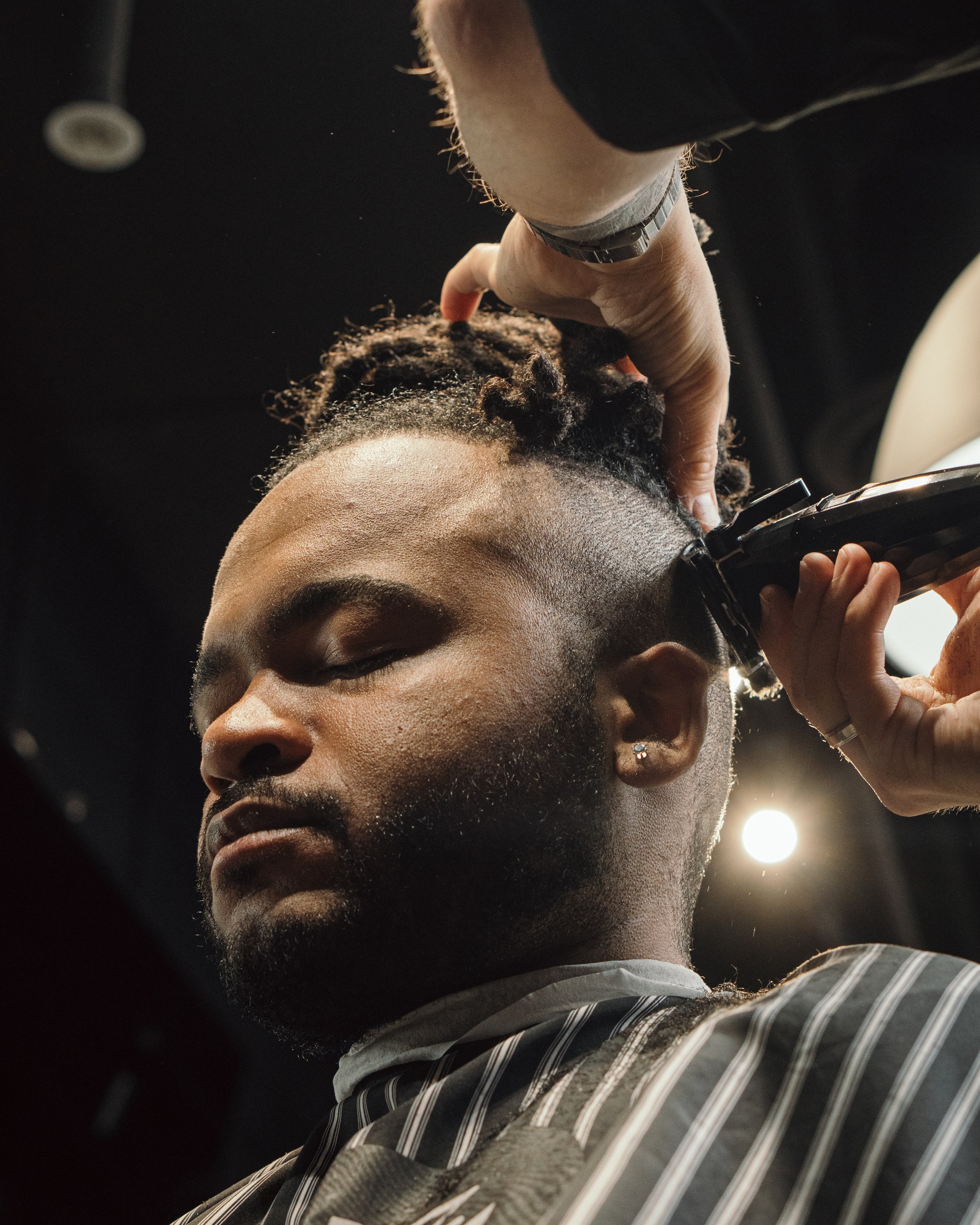A lot of people like to believe there is such a thing as the 'perfect' schedule to wash your hair, but the truth is that there's no universal answer to how often you should wash your hair. The guy telling you to shampoo daily might be giving you advice that works perfectly for his hair type and lifestyle while completely destroying yours.
At Rendezvous Barbershops, we get asked about washing frequency more than almost any other grooming question. Guys are confused because they're following generic advice that doesn't account for their individual hair type, scalp condition, lifestyle, or even Toronto's specific water quality and climate challenges.
The reality is that your optimal shampooing schedule depends on dozens of factors that most generic advice completely ignores. Understanding the science behind why different schedules work for different people helps you figure out what actually works for your specific situation instead of blindly following rules that might be sabotaging your hair.
The Scalp Oil Production Reality
Your scalp produces oil through sebaceous glands attached to every hair follicle. This isn't a design flaw – it's your scalp's natural way of protecting hair and maintaining healthy conditions for growth. But the amount and type of oil your scalp produces varies dramatically between individuals.
Some guys have hyperactive sebaceous glands that produce enough oil to power a small engine. These guys might need daily washing just to avoid looking like they dunked their head in olive oil. Other guys have minimal oil production and can go days without their hair looking or feeling greasy.
The production rate isn't just genetic – it's influenced by age, stress levels, diet, hormones, and even the weather. Your scalp might produce more oil during Toronto's humid summers and less during dry winters. Stress from work or life changes can temporarily increase oil production, while certain medications can decrease it.
Understanding your personal oil production pattern is the foundation of finding your optimal washing schedule. If you're fighting against your natural production rate instead of working with it, you'll never achieve consistent results.
How Shampoo Actually Works
Most guys think shampoo just removes dirt and oil, but the science is more complex. Shampoo contains surfactants – molecules that grab onto both oil and water, allowing them to mix and rinse away. But different shampoo formulations work differently and affect your scalp's oil production in various ways.
Harsh shampoos strip away all oil, including the natural protective layer your scalp needs. This can trigger rebound oil production, where your scalp overcompensates by producing even more oil than before. This creates a cycle where you need to wash more frequently, which strips more oil, which triggers more production.
Gentle shampoos remove excess oil while leaving some natural protection intact. This maintains your scalp's natural balance and can actually reduce the need for frequent washing over time. But gentle formulations might not be strong enough for guys with very oily scalps or heavy product use.
The pH level of your shampoo also affects how your scalp responds. Hair and scalp naturally lean slightly acidic, and shampoos that maintain this pH level tend to cause less disruption to natural oil production patterns.
Individual Factors That Determine Your Schedule
Your optimal washing frequency depends on multiple personal factors that generic advice can't account for. Hair texture plays a huge role – fine hair shows oil more readily than coarse hair, so guys with fine hair typically need more frequent washing even if their scalp produces the same amount of oil.
Hair length affects how oil distributes. Short hair can look greasy quickly because oil doesn't have far to travel from scalp to ends. Longer hair distributes oil over more surface area, so the same amount of oil production might be less noticeable.
Your activity level matters significantly. Guys who exercise regularly, work in dusty or dirty environments, or sweat heavily need more frequent washing regardless of their natural oil production. The combination of sweat, dirt, and natural oils creates a mixture that needs regular removal.
Scalp sensitivity is another crucial factor. Some guys have sensitive scalps that become irritated with frequent washing, while others have resilient scalps that handle daily shampooing without problems. Pushing past your scalp's comfort level usually creates more problems than it solves.
Product use also determines washing needs. Guys who use heavy styling products, leave-in treatments, or multiple products daily need stronger or more frequent cleansing than guys who use minimal products.
Toronto's Water Quality Impact
Toronto's relatively hard water adds another layer of complexity to finding your optimal washing schedule. Hard water contains minerals that can build up on hair and scalp, affecting how clean your hair gets and how your scalp responds to different washing frequencies.
The minerals in hard water can make shampoo less effective, requiring either stronger formulations or more frequent washing to achieve the same cleanliness level. They can also create buildup that makes hair feel heavy or look dull even when freshly washed.
Hard water interacts differently with various hair and scalp types. Some guys find their scalp becomes more sensitive with Toronto's water, requiring gentler shampoos or less frequent washing. Others find they need to wash more often because the mineral buildup makes their hair look dirty faster.
The seasonal variation in Toronto's water quality also affects optimal washing schedules. Winter water treatment can temporarily change mineral content, affecting how your usual routine performs during different months.
Understanding how your hair responds to Toronto's specific water conditions helps you adjust your washing schedule seasonally rather than sticking rigidly to a routine that might work in summer but fail in winter.
Signs You're Washing Too Much
Overwashing is probably more common than underwashing, especially among guys who've been told that daily shampooing is always the right answer. Your scalp will give you clear signals if you're overdoing it.
Increased oiliness despite frequent washing is a classic sign of overwashing. When you strip away too much natural oil, your scalp responds by producing even more oil to compensate. This creates a frustrating cycle where washing more frequently makes the oil problem worse, not better.
Scalp irritation, redness, or itching after washing indicates your shampoo or washing frequency is too harsh for your scalp. Healthy scalps shouldn't feel uncomfortable after normal washing.
Hair that feels dry, brittle, or lifeless despite regular washing suggests you're removing too much natural moisture. Hair needs some natural oil to maintain flexibility and shine.
Dandruff or flaking that gets worse with frequent washing might indicate scalp irritation rather than inadequate cleansing. Sometimes reducing washing frequency allows the scalp to recover and reduces flaking.
Signs You're Not Washing Enough
Underwashing has its own set of clear indicators that are usually more obvious than overwashing symptoms. Hair that looks greasy or feels heavy within 24 hours of washing typically indicates you need more frequent cleansing or stronger shampoo formulations.
Scalp odor that persists despite recent washing suggests buildup of oil, sweat, and bacteria that requires more thorough or frequent cleaning. Healthy, adequately washed scalps shouldn't have noticeable odors.
Product buildup that makes hair feel sticky, look dull, or resist styling indicates insufficient cleansing of styling products and natural oils. This buildup prevents new products from working effectively and can clog follicles.
Scalp acne or folliculitis (inflamed hair follicles) often results from inadequate cleansing allowing oil and bacteria to accumulate around follicles.
Finding Your Personal Sweet Spot
Determining your optimal washing schedule requires experimentation and honest assessment of your results. Start with every other day and adjust based on how your hair and scalp respond over a week or two.
Pay attention to when your hair starts to feel or look greasy. If it's within 24 hours, you probably need daily washing or stronger shampoo. If you can go 48-72 hours before noticing oil buildup, less frequent washing might work better.
Consider your lifestyle and schedule when determining frequency. There's no point in finding the theoretically perfect schedule if it doesn't fit your daily routine. A slightly imperfect schedule that you can maintain consistently will always produce better results than a perfect schedule you can't stick to.
Seasonal adjustments are normal and expected. Your optimal summer schedule might be different from your winter routine due to changes in activity levels, humidity, and scalp oil production.
Common Washing Mistakes
Many guys make their washing routine more complicated than necessary by following advice that doesn't match their specific situation. Using shampoo formulated for a different hair type or scalp condition can throw off your entire routine.
Washing with water that's too hot strips more oil than necessary and can irritate sensitive scalps. Lukewarm water cleans effectively while being gentler on hair and scalp.
Scrubbing too aggressively or using fingernails instead of fingertips can damage the scalp and stimulate excess oil production as a protective response.
Not rinsing thoroughly leaves shampoo residue that can cause irritation and buildup, negating the benefits of proper cleansing.
Conclusion
Book your appointment today and discover how the right washing schedule can improve your hair's health, appearance, and manageability. For personalized hair care advice that actually works for your individual needs, visit Rendezvous Barbershops. We help you work with your hair, not against it.
